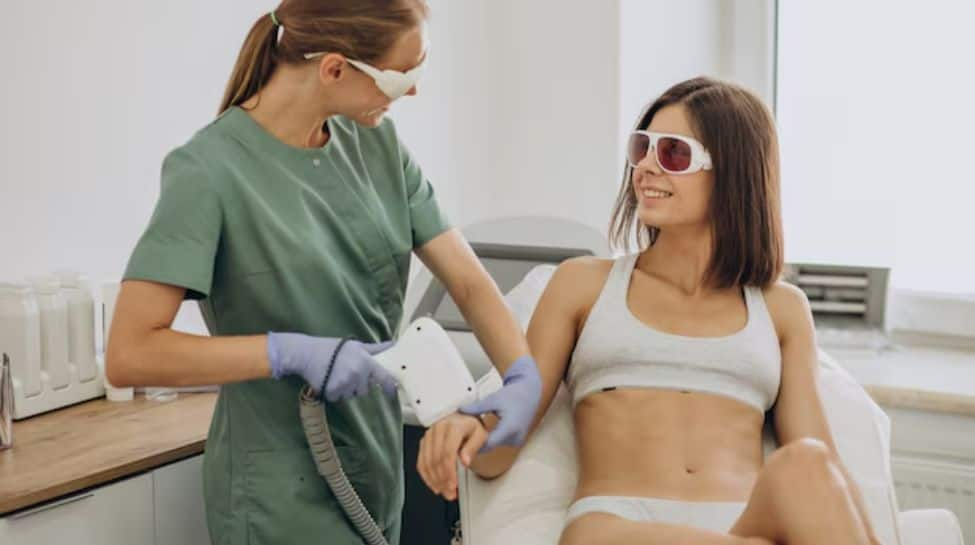Laser hair reduction has gained huge popularity for its capability to permanently eliminate unwanted hair. However, several myths are still reigning around this treatment that confuse people and prevent many applicants from availing it. In this chapter, we will address the most common myths related to laser hair reduction, as well as list those people who should avoid it for their own safety.
Common misconceptions about laser hair reduction shared by Dr. Vidushi Jain, Dermatologist and Medical Head at Dermalinks.
1. Laser Hair Removal is permanent: The most often held belief is that laser hair removal permanently gets rid of unwanted hairs. In fact, laser hair reduction tremendously reduces the hair growth but never stops it altogether. Several sessions may be required, and then some grow back, although finer and lighter in color over time.
2. Laser Hair Reduction is Painful: The misconception that laser treatments are sore is a fact that scares people away from the treatment. However most patients claim that the experience was mildly sore during treatment, something that many of them described as being similar to a rubber band snapping against the skin. High-end lasers have built-in cooling that even cools the skin while working, minimising discomfort altogether.
3. It only works well on light skin and dark hair. Although it is truer for the previous laser technology to work far more effectively on light skin and dark hair due to the pigmentation contrast, recent advances in laser technology have opened it up to a host of skin tones and hair colors for treatment.
4. Unsafe for sensitive area: People assume that laser hair reduction is unsafe for sensitive areas like face, underarms, and bikini line. But the fact is, laser hair reductions are pretty safe for those areas if done by an expert. Targeted skills ensure less irritation and quick recovery time. The patient should follow up on post-care treatment. Redness or temporary irritation can be complications if proper care is not taken.
5. It Causes Cancer: Skin Cancer This might probably be one of the most scary myths, but it is utterly false. Laser hair reduction uses non-ionizing radiation which doesn’t damage DNA or cause cancer. It is approved by all regulatory bodies worldwide-from the FDA to others around the world-as a safe and effective treatment for reducing hair.
Who Shouldn’t Have Laser Hair Reduction?
Although the procedure, laser hair reduction, is safe, there aren’t a few conditions and circumstances where individuals should not try it at all.
1. Active Skin Conditions or Infections: Patients suffering from the following active skin conditions or infections are not eligible for laser hair reduction: eczema, psoriasis, and severe acne. Such active infections flare up and cause discomfort as well as damage to the skin during laser hair reduction.
2. Pregnant and nursing mothers: No documented study could be found, which would indicate the adverse effect of laser hair removal on pregnant or nursing mothers, but many practitioners also advise against this during pregnancy for cautionary measures.
3. Keloid Scar Formers or Dysfunctional Wound Healers: When the person develops keloids or has a dysfunctional wound healing process, laser treatment is to be used with caution. The person may develop unwanted scars due to laser treatment.
4. Those with Tanned Skin: The candidates who have previously spent more time under the sun or those who have tanned skin should delay laser hair removal therapy. Tanned skin will absorb more light from the laser that may increase the potential risks in burning, skin pigmentation changes, and damage.
5. Patients on Certain Medications: There are certain medications such as photosensitizing drugs that tend to increase the effect of light on the skin. Such patients should thus avoid laser hair reduction because their skin may adversely react to it.
While most people are good candidates for the procedure, those with specific skin conditions or who take certain medications, pregnant women, etc., must be consulted with a healthcare professional before making a final decision on the treatment. Seek only qualified dermatologists or laser technicians to give you your best result.

